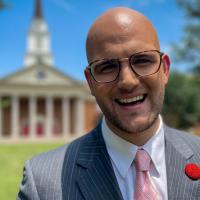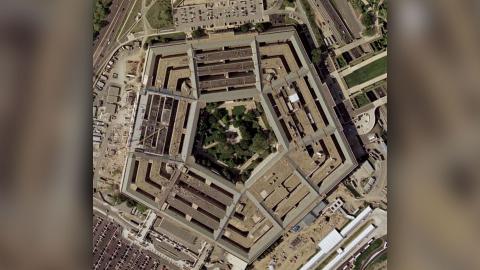A California-Style Crisis: 'People Are Just Free to Destroy Their Lives Out in the Open'
Drugs, crime, and homelessness are taking over much of San Francisco – although billions are being spent toward a solution, the city's problems are compounding.
A recent report from the University of California San Francisco shows that California accounts for one-third of all homeless people in the U.S.
"People are just free to destroy their lives out in the open," said one local. "Crack, meth – I see it seven days a week."
CBN News witnessed San Francisco's scenes of addiction and homelessness firsthand. One woman we spoke with named Kristen from New York has been living on the streets for more than a decade. She currently sleeps in a tent with her dog in a vacant parking lot.
"(I) get water from the fire hydrant," Kristen said. "You know what I mean? There's no other place to get water."
Despite a judge's order protecting encampments, a number of the Bay Area's tent cities have been torn down to reduce crime and clear streets. Now those people live in sidewalk dwellings or business and residential doorways where many sleep, drink and use drugs.
Over the last few years, at least 17 retailers have left the city's Union Square due to growing crime – including Nordstrom, Office Depot, and Old Navy.
"A lot of people and businesses have closed because they have more thieves than customers," said one downtown bodega shop owner named Mohamad.
READ Liberal-Run Cities Trapped in an 'Urban Doom Loop'
Civil Rights attorney Angela Alioto is a former president of San Francisco's Board of Supervisors. In 2004, Gov. Gavin Newsom appointed Alioto to create a 10-year plan to abolish chronic homelessness.
"You must admit, we made bad decisions," Alioto said. "We made bad policy – undo it. Have the guts to stand up and undo it."
Since then, Alioto has supported several controversial initiatives including the city's Sanctuary Law and Syringe Exchange Program. Today, she believes they're outdated and plagued by corruption.
"This is a $14 billion budget," said Alioto. "When I ran for mayor in 2018, it was $5 billion. Okay, 2 billion is going to homelessness and homelessness-related issues. How is that not corrupt? How is 60% of that money not going in somebody's pocket?"
There are 28,000 non-profits in Metro San Fran. Last year alone, the city gave $1.4 billion to these non-profits. Alioto sees that money only making matters worse.
"We have way too many nonprofits," Alioto said. "I'll go as far as to say that some of them are not trying to help. Some of them have perpetuated a homeless industry that is killing us."
***Please sign up for CBN Newsletters and download the CBN News app to ensure you keep receiving the latest news from a distinctly Christian perspective.***
Rampant crime is another public health and safety issue. Some blame policies like Proposition 47, which considers theft under $1,000 a misdemeanor and made cars a prime target throughout the city.
"Prop 47 needs to absolutely be undone," exclaimed Alioto. "It is ridiculous, it gives license to people to steal."
Amid all this, the San Francisco Police Department also faces a catastrophic staffing shortage. The city supervisor proposed recruitment bonuses ahead of some 300 officers scheduled to retire.
Meanwhile, in San Francisco and across the bay in Oakland, a non-profit called City Team keeps hope alive by sharing love in the form of a hot meal and warm bed.
"We can stand by, preach and pray – that's great for the congregation – but what's great for the world is putting that into service," said Gabriel Flores, a former homeless man and now Programs Manager for City Team.
The organization believes sharing God's love is the strongest way to make a difference – interacting with the tragic nature of homelessness daily.
After seasons of homelessness and being in-and-out of jail, Flores was able to turn his life around thanks to the organization's practice of helping those who graduate from their program.
"I never thought I'd be drug-free, not drinking," Flores said. "I never thought that my life would lead to here."
Kimbel Welch is another graduate, who overcame years of addiction to help set an example for others still living on the street.
"I was homeless 20 years, so I have a lot of bad habits to overcome," Welch said. "One of my most sacred ideals is to remember that everyone is a child of God, and they deserve love and respect."
The City Team kitchen puts that ideal into action so it doesn't matter what kind of trauma or addiction you suffer from; everyone gets a hot meal.
"I am homeless, me and my daughter have been sleeping in my car," said one woman in the cafeteria.
Volunteers and staff serve thousands of meals each week while offering long-term housing and rehabilitation to those ready to make a change.
"What we do is the best solution – but that only works for the people who want it and are willing to go through the process," Welch said.
San Francisco recently launched a $6 million campaign to attract tourists and showcase the city in a bright light – but if money can't fix the city's problems and non-profits can only go so far, questions remain on how to solve these issues and save San Francisco.
"I think a year from now we could be sitting in a totally different, gorgeous city – if people would do the right thing," Alioto said.





